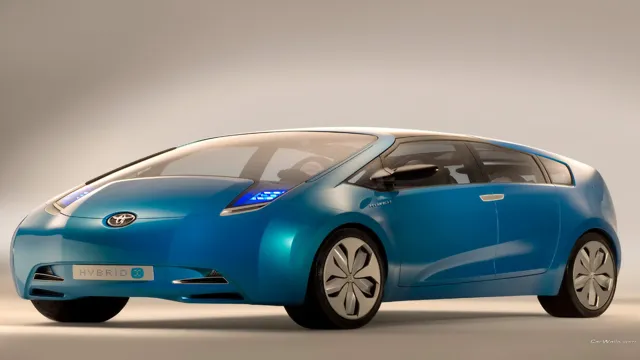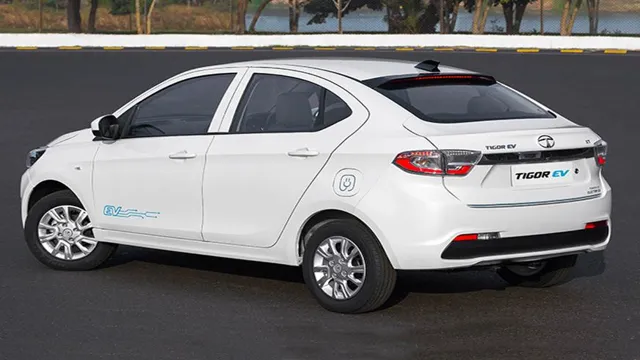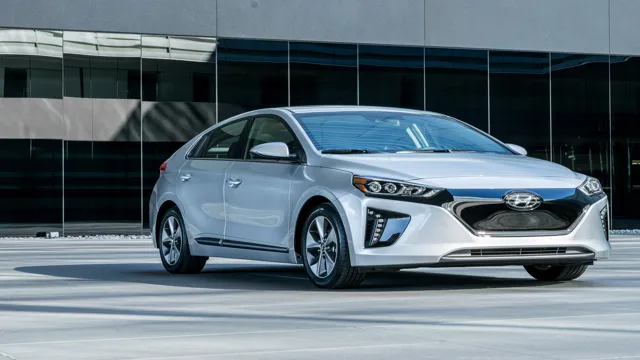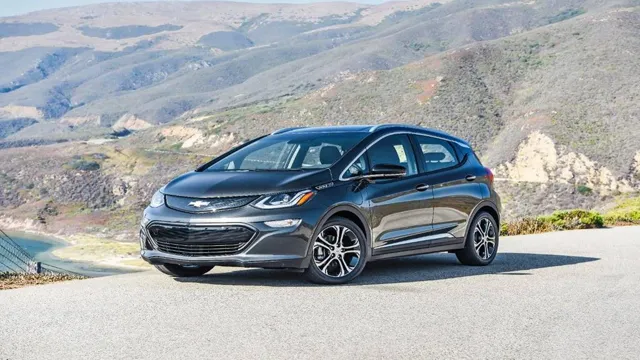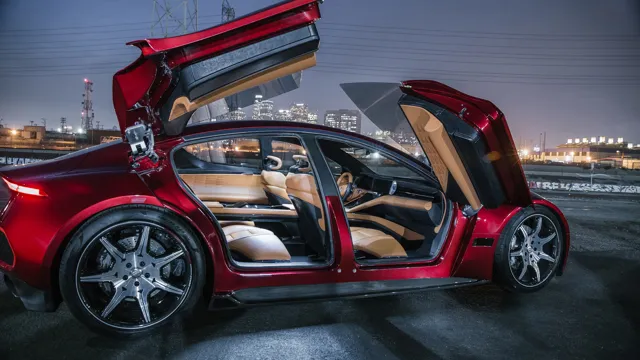Spark up Your Interest: The Latest Electric Cars News in the UK
If you’re like most people, you’ve probably noticed the proliferation of electric cars in the UK. It’s hard to ignore their sleek and stylish designs, smooth and quiet rides, and eco-friendliness. But what’s behind the surge in popularity? In this blog post, we’re going to explore some of the latest electric car news in the UK, including exciting developments, innovative designs, and government initiatives aimed at promoting sustainable driving.
Whether you’re a diehard electric car fan or just curious about this new wave of technology, you won’t want to miss what we have in store. So buckle up and let’s get started!
Sales and Adoption Rates
Recent news from the UK electric car market suggests a significant rise in sales and adoption rates. In the first half of 2021, sales of electric cars increased by 159% compared to the previous year, making up over 10% of new car sales. This surge in demand can be attributed to a combination of factors, including advancements in technology, increased environmental awareness, and government incentives.
As more people become aware of the benefits of electric vehicles, such as lower emissions and running costs, we can expect to see further growth in the market. It’s an exciting time for the electric car industry in the UK, and with the government’s ambitious plans to phase out petrol and diesel cars by 2030, we can expect even more demand for electric cars in the years to come. Overall, the future looks bright for electric cars in the UK, and it’s promising to see such significant growth in sales and adoption rates.
The surge in electric car sales in the UK
Electric car sales in the UK have surged in recent years, with adoption rates hitting record levels. In fact, new car registrations for electric vehicles reached a high of 108,205 units in the country in 2020. This growth is in large part due to several incentives the government has implemented for both individuals and businesses to switch to EVs.
One of the most significant developments was the creation of the Plug-In Car Grant, which provides buyers of EVs with a discount of up to £2,500 to help offset the high upfront costs of these vehicles. Additionally, cities across the UK have implemented low-emission zones, which further incentivize drivers to opt for electric cars. With more charging infrastructure being installed and range anxiety becoming less of a concern, it seems likely that electric cars will continue to see a surge in sales in the UK.
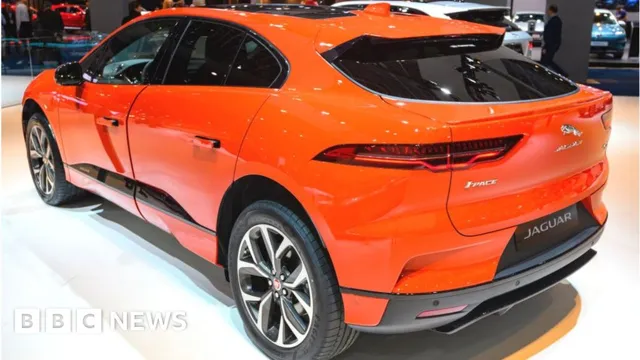
Top-selling electric car models in the UK
When it comes to electric cars, the UK market has seen a significant rise in sales and adoption rates in recent years. The top-selling models in the country include the Tesla Model 3, the Nissan Leaf, and the Hyundai Kona Electric. Each of these cars has made considerable progress in terms of range, performance, and convenience.
The Tesla Model 3, for instance, has a range of up to 360 miles on a single charge, while the Nissan Leaf has a range of up to 168 miles. The Hyundai Kona Electric boasts a range of 278 miles on a single charge, making it a popular choice for drivers who prioritize long-distance travel. With government incentives and an increasing number of charging stations available across the country, it’s no wonder why electric cars have become a popular choice for environmentally-conscious drivers looking to make a positive impact on the planet.
Charging Infrastructure
Electric cars news in the UK is constantly evolving, with numerous developments being made in the area of charging infrastructure. In recent years, there has been an increase in the number of electric vehicles on UK roads, and as such, the demand for charging stations has grown exponentially. To meet this demand, the UK Government has set out a target to install more than 18,000 public charging stations across the country by 202
With major energy companies and private investors also getting involved in the infrastructure development, drivers are now able to seamlessly charge their electric vehicles in a convenient and reliable way. Additionally, advancements in technology mean that super-fast charging options (such as 350 kW DC charging) are becoming more readily available, allowing drivers to top up their cars in minutes rather than hours. These are exciting times for the electric vehicle industry in the UK, with the future looking bright for both drivers and the environment.
Updates on UK’s electric vehicle charging network
Electric vehicle charging infrastructure in the UK is continuously evolving. In recent years, the number of charging stations has increased significantly, allowing EV drivers to travel further and with greater ease. Currently, there are over 25,000 public charging points scattered nationwide, and the number is set to increase even more rapidly in the next few years.
Moreover, these charging points are becoming more efficient, with the installation of fast chargers capable of charging an EV battery up to 80% in just 30 minutes. The UK government’s £5 billion investment in EV charging infrastructure, announced earlier this year, has provided a major boost to the industry.
The scheme aims to fund the installation of 6,000 rapid chargers at motorway service areas, filling stations, and busy city centers by 203 This investment will undoubtedly accelerate the transition to electric vehicles and make it more convenient for drivers to charge their cars, especially during longer journeys. In summary, the electric vehicle charging infrastructure in the UK is rapidly expanding, providing a significant boost to the adoption of electric vehicles.
With the government’s support, the industry appears to be on track to provide a convenient, reliable, and efficient charging network for all EV drivers.
Charging at home vs public charging points
Charging at home versus public charging points is a topic that has gained a lot of attention in recent times. Home charging is undoubtedly more convenient as it allows you to charge your electric vehicle (EV) while you relax at home. However, public charging points are essential to EV owners who cover long distances and cannot rely solely on home charging.
Public charging points offer faster charging rates, enabling you to charge your vehicle to about 80% in just 30-40 minutes. Besides, public charging points are available in various locations like parking garages, shopping centers, and highways, providing a wide coverage network for EV owners. It’s important to note that both charging methods have their unique benefits and drawbacks for EV owners.
However, it’s best to have a balance between home charging and public charging points to meet your driving needs and maximize your EV’s efficiency.
Government incentives for EV charging infrastructure
As the world moves towards electric vehicles, charging infrastructure plays a vital role in enabling the adoption of EVs. Governments around the world are recognizing this and offering incentives for the development of EV charging infrastructure. For instance, the UK government has set aside a fund of £500 million for EV charging infrastructure as part of its Net Zero commitment.
Similarly, the US government offers tax credits for up to 30% of the cost of installing EV charging stations. These incentives are not only encouraging the development of charging infrastructure but are also easing the financial burden on individuals and businesses investing in EV charging stations. Overall, these measures will help to increase the number of charging stations, making it more convenient for people to switch to EVs and contribute towards a greener future.
Policy and Regulation
Electric cars are becoming increasingly popular in the UK as consumers seek more environmentally friendly transportation options. But with this surge in demand comes the need for policy and regulation to ensure these vehicles are integrated safely and efficiently into society. The UK government has made significant strides in this area, announcing plans to ban the sale of new petrol and diesel cars by 2030 and investing in infrastructure such as charging stations.
However, there are still challenges to be addressed, such as concerns about the environmental impact of battery production and the need for more reliable charging networks. As electric cars continue to gain momentum, it will be essential for policymakers and regulators to work closely with industry and consumers to build a sustainable and equitable transportation system for the future.
UK’s ban on new petrol and diesel car sales from 2030
The UK government has announced that they will ban the sales of new petrol and diesel cars from 2030, as a part of a broader strategy to reach net-zero emissions by 2050. The move has been lauded by environmentalists, but some are concerned about the impact it will have on the auto industry. The new policy will prompt automakers to ramp up their production of electric or hybrid vehicles in order to meet the growing demand.
Companies such as Tesla, Nissan and many others have already gained a significant market share in the EV segment, and this trend is expected to continue as petrol and diesel cars are phased out. Moreover, there will be opportunities for innovation in the battery technology sector, which will be essential for making electric vehicles more efficient and cost-effective. While the transition to a fully electric vehicle fleet will require a significant investment, it is a step in the right direction to combat air pollution and reducing carbon emissions.
Updates on EV-related policies and regulations
Policy and Regulation The electric vehicle (EV) industry is rapidly growing, and with growth comes the need for policies and regulations to address concerns such as safety, emissions, and infrastructure development. Governments around the world are starting to implement policies and regulations to encourage the adoption of EVs and address the challenges associated with the transition to a more sustainable transportation system. For example, some countries offer financial incentives to consumers who purchase EVs, while others have implemented emissions standards that require automakers to produce a minimum percentage of zero-emission vehicles.
Furthermore, governments are investing in charging infrastructure to ensure that EV owners have access to the necessary charging infrastructure to travel long distances. As the EV industry continues to evolve, it is likely that policies and regulations will continue to be developed and modified to address new challenges and opportunities that arise.
Future of Electric Cars in the UK
The future of electric cars in the UK seems to be very promising. The government has set a target to ban the sale of new petrol and diesel cars in 2030, and all new cars must be zero-emission by 203 This marks a significant shift towards sustainable transport and a cleaner, greener future.
The electric car market in the UK has been steadily growing, and with advancements in technology and infrastructure, it’s only going to get bigger. Sales of electric cars have already surpassed those of diesel cars in 2020, with over 108,000 electric cars registered in the UK so far. The government is also investing in a network of charging stations across the country, ensuring that drivers have easy access to charging points regardless of where they are.
As more people opt for electric cars, it’s likely that we’ll see a drop in pollution and a reduction in our carbon footprint. Electric cars are not only environmentally friendly but they also offer a smooth, quiet, and comfortable driving experience. It’s clear that the future of electric cars in the UK is looking bright, and we can expect to see more exciting developments in the coming years.
Upcoming launches of electric cars in the UK
As the push towards electrification of cars continues, the UK remains at the forefront of the trend with exciting new launches set to hit the market in the near future. With the government’s plan to ban the sale of new petrol and diesel cars from 2030, more and more manufacturers are investing in the development and production of electric vehicles. Some of the eagerly anticipated upcoming launches in the UK include the Volkswagen ID.
3, the Tesla Model Y, the Ford Mustang Mach-E, and the Audi Q4 e-Tron. These electric cars boast impressive performance statistics, with zero-emission driving ranges that offer a sustainable option for eco-conscious drivers. With the increasing availability of EV charging points across the country, the future of electric cars in the UK is set to be an exciting and rapidly evolving one.
Analysis of the future of electric cars in the UK
Electric cars are the future of transportation in the UK. With more and more people looking for greener alternatives to gas-powered vehicles, the market for electric cars is rapidly expanding. Companies such as Tesla, Nissan, and BMW have already jumped on the bandwagon and are producing cutting-edge electric vehicles that offer incredible driving experiences at an affordable price.
Additionally, the UK government has been actively promoting electric cars by offering incentives such as tax breaks, grants, and free charging points. The installation of more charging stations across the country has also made it more convenient for electric car owners to recharge their vehicles while on the road. While there are still some challenges to overcome, such as range anxiety and high cost, the future of electric cars in the UK looks promising.
The transition towards electric vehicles may take time, but the benefits they offer, including reduced emissions, improved air quality, and lower running costs, will undoubtedly make them increasingly popular in the years to come.
Conclusion
In conclusion, the rise of electric cars in the UK is not just a passing trend, but a necessary shift towards a more sustainable future. As the technology continues to evolve and become more accessible, we can expect to see more and more electric cars on the road, reducing our dependence on fossil fuels and decreasing our carbon footprint. And let’s be real, who doesn’t want to zip around in a car that feels like it’s straight out of a sci-fi movie? The future is electrifying, and we’re all here for it.
“
FAQs
What are some recent news updates on electric cars in the UK?
Recent news updates on electric cars in the UK include the government’s plan to ban the sale of petrol and diesel cars by 2030, the launch of more affordable electric car models, and the expansion of public charging infrastructure.
How much does it cost to charge an electric car in the UK?
The cost to charge an electric car in the UK can vary depending on factors such as the size of the car’s battery, the charging speed, and the time of day the charge is initiated. On average, it can cost around 12-25 pence per kilowatt-hour.
What are some benefits of owning an electric car in the UK?
Benefits of owning an electric car in the UK include reduced emissions, lower running costs compared to petrol or diesel cars, access to certain incentives such as tax exemptions, and the potential to generate income from selling excess energy back to the grid.
What is the current state of electric car adoption in the UK?
Electric car adoption in the UK is on the rise, with sales increasing year on year. However, electric cars still only make up a small percentage of overall vehicle sales, and there are challenges such as the need for more charging infrastructure and concerns around battery range and the perceived cost of electric cars.

